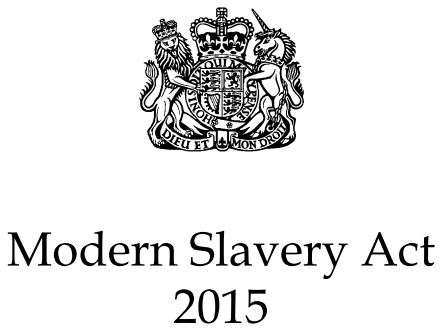Modern Slavery Act 2015 – Requirements for businesses
As a House of Lords Committee looks into the impact and effectiveness of the Modern Slavery Act, we recap on the key requirements of the Act for businesses.
At the end of February, the House of Lords Committee on the Modern Slavery Act 2015 invited written submissions into the impact and effectiveness of the Act. It asked for evidence into areas such as the efficacy of the Act’s provisions on supply chains; whether the Act has kept up to date with developments in modern slavery and human trafficking, in the UK and internationally; efficacy of its sanctions; reporting and enforcement provisions, to name a few. The Committee is due to report back at the end of November. In the meantime, we look at some of the key requirements which businesses must comply with as the law currently stands.
Requirement to publish modern slavery statement
Section 54 of the Act requires commercial organisations to publish an annual modern slavery statement if all of the following apply:
- It is a body corporate or a partnership, wherever it is incorporated or reformed.
- It carries on a business, or part of a business in the UK.
- It supplies goods or services.
- It has an annual turnover of £36 million or more.
There is no specific time limit or deadline by which the annual statement needs to be made, but Home Office guidance (‘guidance’) states that businesses should publish the statement as soon as possible after their financial year end, and at the latest, within 6 months of the financial year end. Businesses can do this at the same time that they publish their other annual accounts.
Where an organisation does not meet the above section 54 requirements, e.g. if it is a smaller organisation with turnover under £36 million, the guidance suggests that it can still choose to voluntarily produce a “slavery and human trafficking statement”. It might be helpful for a business to have such a statement in place, for example, to help respond to requests from customers or suppliers with an annual turnover above the £36 million threshold who want to know how the business is tackling the issue of modern slavery in its supply chain. If a smaller organisation is able to produce a statement voluntarily, this should provide reassurance to its customers, suppliers and other interested stakeholders.
The guidance suggests that even where section 54 does not apply, all businesses should be encouraged to be open and transparent about their onboarding practices and procedures regarding modern slavery, and that they should take steps that are consistent and proportionate with their sector, size and operational reach.
Content of the statement
The guidance recommends that the statement should:
- Be written in simple language so that it is easily accessible to everyone.
- Be succinct but cover all relevant points.
- Contain links to relevant publications, documents or policies.
- Be written in English, but it may be provided in other languages that are relevant to the supply chain.
It also suggests that specifying the actions by specific country will help readers understand the context of the steps taken.
The slavery and human trafficking statement must include either a statement:
- Of the steps the organisation has taken during the financial year to ensure that slavery and human trafficking is not taking place in any of its supply chains, and in any part of its own business; or
- That the organisation has taken no such steps.
The requirement to “ensure that slavery and human trafficking is not taking part in any part of its supply chain” does not mean that the organisation must guarantee that its entire supply chain is free from slavery, but rather that the organisation should set out all of the actions that it has taken to ensure its supply chain and its business is free from slavery.
There is no prescribed form or length of the statement, and it can include the following:
- The organisation’s structure, business and its supply chains.
- Its policies in relation to slavery and human trafficking.
- Its due diligence processes in relation to slavery and human trafficking in its business and supply chains.
- The parts of its business and supply chains where there is a risk of slavery and human trafficking taking place, and the steps it has taken to assess and manage that risk.
- Its effectiveness in ensuring that slavery and human trafficking is not taking place in its business or supply chains, measured against such performance indicators as it considers appropriate.
- The training about slavery and human trafficking available to its staff.
The guidance highlights that the public, investors, the media and other external parties will assess an organisation’s statement and will expect to see improvements year-on-year outlining the organisation’s practical progress on how it is tackling the risks and incidence of modern slavery. Organisations should therefore be as open and as transparent as they can.
Approval and signature of statement
- Companies – the board of directors must approve the statement and it must be signed by a director.
- Limited liability partnerships (LLPs) – LLP members must approve the statement and it must be signed by a designated member.
- Limited partnerships registered under the Limited Partnerships Act 1907 – general partner must sign the statement.
- Other types of partnership – a partner must sign the statement.
Publication of the statement
If the organisation has a website, it must publish the statement on its website and include a link to the slavery and human trafficking statement in a prominent place on the homepage. This could be a link that is directly visible on the home page or part of an obvious drop-down menu on the home page. The link should be clearly marked so that the contents are obvious, e.g. the link could say “Modern Slavery Act Transparency Statement”.
If the organisation does not have a website, it must provide a copy of the slavery and human trafficking statement to anyone who makes a written request for one within 30 days of the company receiving the request.
Government-run modern slavery statement registry
It is proposed that section 54 should be changed to require organisations to publish their statements on a government website. Ahead of this change, the government encourages organisations to publish their statements on the government-run modern slavery statement registry launched by the Home Office on 23 February 2021. The service can be used to find or add modern slavery statements to the registry.
Enforcement of statement
There are proposals to introduce financial penalties for non-compliance with section 54.
Currently the Secretary of State is able to enforce the duty to prepare a slavery and human trafficking statement in civil proceedings by way of an injunction. If the organisation fails to comply with the injunction, it will be in contempt of a court order and will be liable to an unlimited fine.
Aside from the statutory sanctions, a failure to comply with section 54 could lead to a damage in reputation and brand. Consumers, investors and non-governmental organisations could apply pressure if they believe an organisation has not taken sufficient steps.
Government to publish a list of non-compliant organisations?
Back in 2019 the government planned to carry out an audit of organisations’ compliance with section 54 and publish a list of non-compliant organisations. Although the government put out a tender seeking an organisation to help it carry out this audit, the procurement was later terminated and there seem to be no current plans to revive this initiative.
Examples of legal action for alleged breaches of modern slavery rules
There have been efforts to take action in this area, for example:
- British American Tobacco plc and Imperial Brands plc could face a modern slavery legal challenge brought on behalf of 350 child labourers who work on tobacco crops in Malawi. The companies’ application for strike out of the action was denied in 2021.
- In 2022, former workers from Dyson’s biggest parts supplier, Malaysian firm ATA IMS sent a letter before action for a claim for compensation over poor working and living conditions at ATA factories.
We keenly await the Committee’s report on its findings into the Act’s efficacy and will provide an update in due course.

